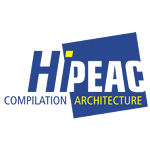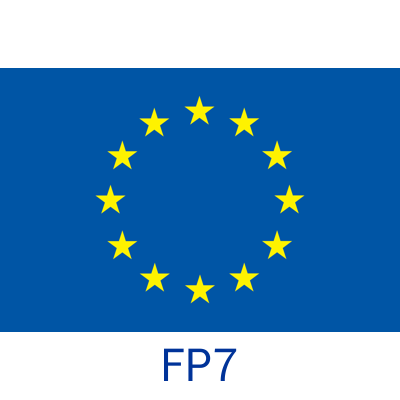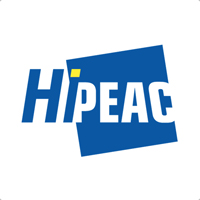 HiPEAC 3
HiPEAC 3
| FP7-ICT-287759 3 years (Jan 2013 to Dec 2015) http://www.hipeac.net | |
| Summary: | As part of the research coordination program, HiPEAC3 includes a new instrument, called Thematic Sessions. A Thematic Session is a natural evolution of the clusters and task forces in HiPEAC2, but more reactive and self-organized. In HiPEAC3, any partner or member can propose a thematic session, on condition that it is related to the HiPEAC vision. A thematic session is comparable to an informal workshop. As an organizer, you will have to solicit contributions, but there should be no formal call for papers, neither a formal reviewing of the contributions. Proposers of a thematic session are encouraged to involve the FP7 projects and HiPEAC companies in the session they propose. In that sense a thematic session is very similar to the organization of a cluster meeting in HiPEAC2. Collaboration and networking between member institutions and across the different disciplines: computer architects, design tool builders, compiler builders, system designers, between researchers from academia and industry, between European and non-European institutions. This collaboration between best of breed must lead to more European excellence in the HiPEAC domain. Collaboration and networking is stimulated by means of the various networking events, and the small collaboration incentives like collaboration grants, mini-sabbaticals, internships, ... Valorisation of research results in the form of highly visible publications and commercialization of research results by existing companies or by newly created companies. The goal is to help companies to achieve world-leading positions in the computing systems and computing products, and to further increase Europe’s worldwide visibility in the HiPEAC domain via the HiPEAC conference, the ACACES summer school, the HiPEAC journal, a newsletter, a website, seminars, technical reports, workshops, and awards. |
| Sponsors: |  |
| Contact Person at CISTER: | Luis Miguel Pinho |
Results of P-SOCRATES project presented in Stockholm
 Last January, CISTER researcher Luis Miguel Pinho presented the results of the P-SOCRATES project in the 5th International workshop on the “Integration of mixed-criticality subsystems on multi-core and manycore processors”. The workshop focused on solutions for the integration of mixed-criticality subsystems on multi-core processors, integrated in the HiPEAC 2017 conference.
Last January, CISTER researcher Luis Miguel Pinho presented the results of the P-SOCRATES project in the 5th International workshop on the “Integration of mixed-criticality subsystems on multi-core and manycore processors”. The workshop focused on solutions for the integration of mixed-criticality subsystems on multi-core processors, integrated in the HiPEAC 2017 conference.
The HiPEAC conference is the premier European forum for experts in computer architecture, programming models, compilers and operating systems for embedded and general-purpose systems. The conference attracted more than 500 participants from industry and academia from 37 countries.
The presentation both provided an overview of the successful outcomes of the P-SOCRATES project, as well as in particular focusing in the timing analysis methodology of the project, a technical work performed by the ISEP team in the project.
P-SOCRATES is an FP7 European project led by CISTER, a 3-year initiative that fosters the convergence of High-Performance Computing and Embedded Computing domains. The project developed methodologies and execution environments able to deliver high throughput, suitable for computationally-intensive applications, but also predictable throughput, so that guarantees can be provided on the responsiveness on the software functionality








